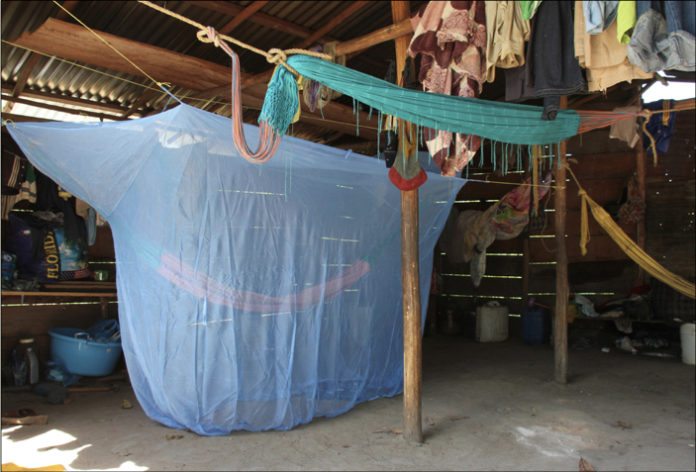Local Rotarian helps The Mosquitero project
Mosquitos are a worldwide problem and some nations do not have the means or the science to fight them effectively like the Keys. Thanks to the Rotary Club’s Mosquitero Project, volunteers are going global with a uniquely designed net to help stave off the devastating effects such as malaria. This week local Rotarian Rachel Oropeza, past Key West Rotary Club president, will be traveling to Iquitos, Peru to deliver 1,000 nets to local villages. This will be her third trip on such a mission.
“I will be traveling with Rotarians from the Key Biscayne and several other Miami Clubs. We partner with our Rotarians, Rotoractors and students from the University de Amazone in Iquitos to deliver the treated nets. The plan is to visit five or six villages in and around Iquitos at the basin of the Amazon,” said Oropeza, “We wear lots of repellent, sweat like hell, come away full of mud but sleep really good at night knowing what we have done.”
The nets are specially treated with Deltamethrin, a Pyrethroid ester insecticide, the man-made version of insecticide derived from chrysanthemum flowers. The long lasting insecticide nets are WHO approved and not harmful to humans. Since the anopheles darlingi mosquito only bites at night, the nets are used over beds and hammocks to protect people while sleeping. They kill mosquitos as well as other parasites that can transmit chagas disease. Since there is no effective vaccine for malaria, the net becomes an imperative protection from the mosquito itself. (Note: Mosquitos that transmit dengue and zika bite during the day, so bed netting would not be effective in the Keys.
“When everyone uses this kind of net in a village,” said Rotarian and coordinator Steve Baker, Key Biscayne, “there is a mass killing effect – 90 percent of the mosquitos die – and it contributes to 80 percent success rates in towns.”
The volunteers will go from village to village distributing the $10 nets, unwrapping them so they cannot be stolen or resold, and showing the villagers how to use them. A net properly cared for can last three to four years. Seven thousand nets have gone to Venezuela and another 7,000 to Peru , with an additional 7000 for Peru in the future.
Like a true Rotarian, Oropeza’s suitcases will be laden with donated school supplies for the Peruvian children. “The look on a child’s face when you hand them something of their own is truly rewarding!”
It’s a lot of hard work but it’s the one thing I do for me.” – Rachel Oropeza, Rotarian volunteer


























